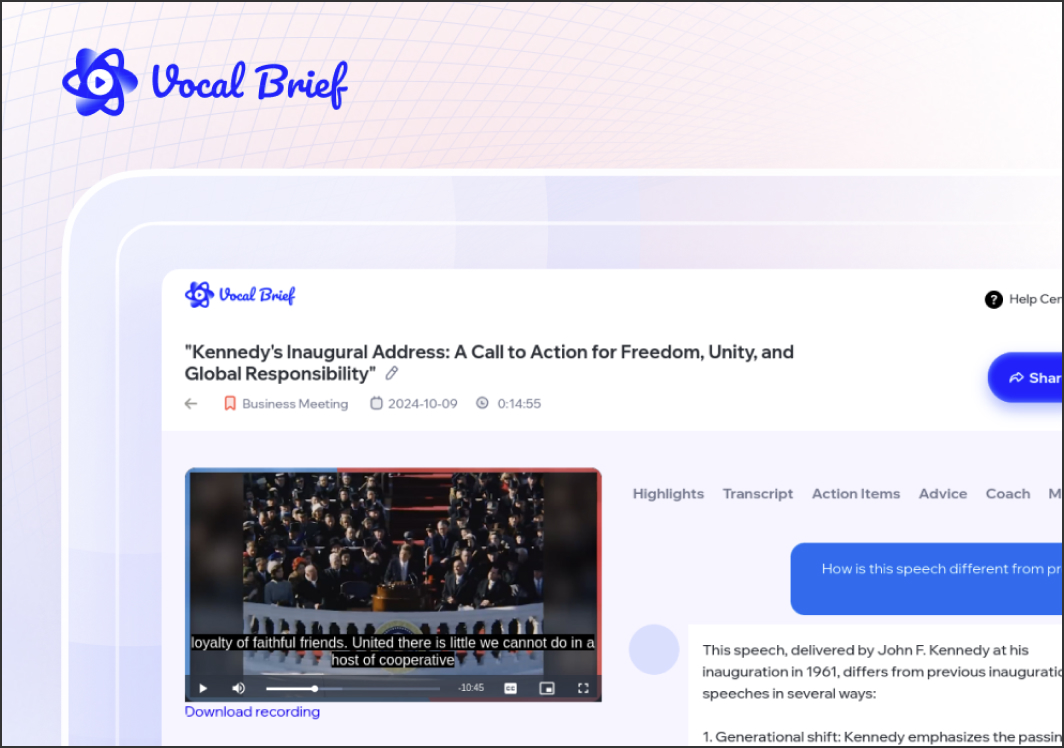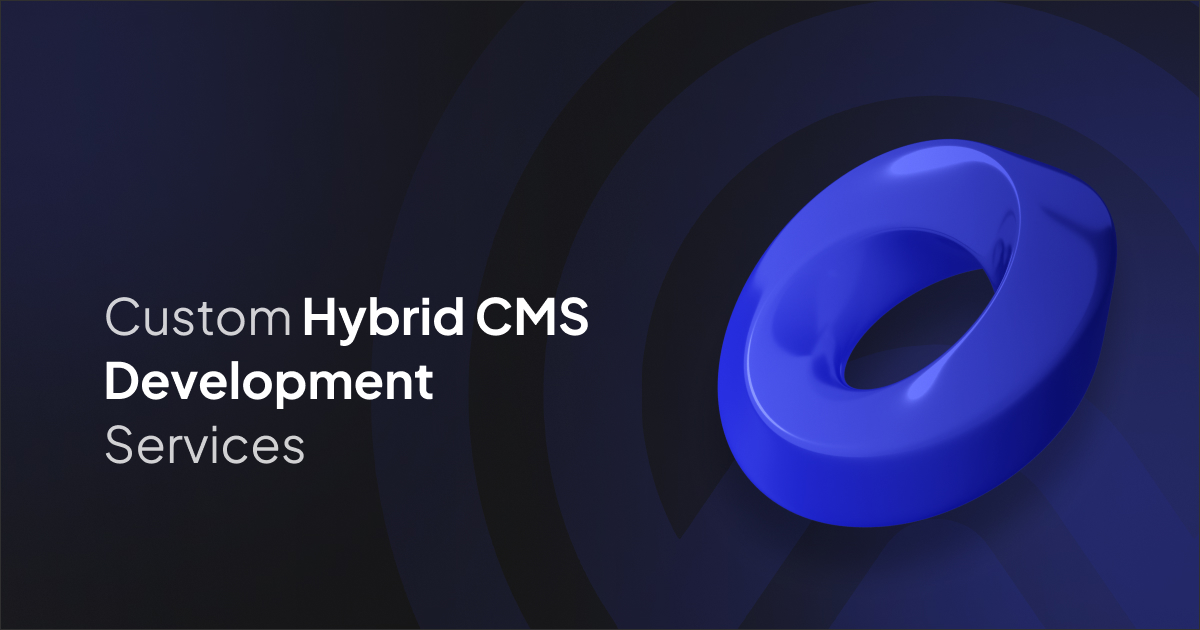A hybrid CMS merges the structured content management of traditional CMS platforms, like WordPress, with the API-driven flexibility of headless CMS systems, such as Contentful. It offers a balanced approach, providing user-friendly tools for managing content alongside the ability to deliver it across multiple channels through APIs. This makes hybrid CMS a versatile choice for a wide range of digital projects.
Core Features of Hybrid CMS
- Intuitive Content Management: Offers a familiar interface for creating and editing content without requiring advanced technical skills.
- API-Driven Delivery: Enables content distribution to websites, mobile apps, and emerging platforms like IoT devices.
- Pre-Built Templates: Includes ready-to-use designs for quick setup, with options for customization.
- Scalable Architecture: Supports projects of varying complexity, from simple blogs to large-scale applications.
Why Hybrid CMS Stands Out
Hybrid CMS bridges the gap between the ease of traditional systems and the flexibility of headless architectures. Here’s why it’s a compelling option:
Simplified Content Updates
Hybrid CMS platforms provide user-friendly dashboards that allow content creators to manage text, images, and multimedia effortlessly. This reduces dependency on technical teams, making content updates faster and more efficient.
Multi-Channel Content Delivery
In 2025, content needs to reach audiences across diverse platforms, from websites to smart devices. Hybrid CMS supports this by enabling seamless content delivery through APIs, ensuring consistency across all touchpoints.
Optimized for Performance and SEO
Hybrid CMS combines server-side rendering with API-driven content, resulting in fast-loading pages that are easily crawlable by search engines. This enhances SEO performance, helping content rank higher on platforms like Google.
Rapid Deployment
With pre-built templates and modular components, hybrid CMS allows for quick setup of websites or applications. This is ideal for projects requiring fast turnaround times without sacrificing customization options.
Key Benefits of Hybrid CMS
Hybrid CMS offers a range of advantages that make it a popular choice for modern digital projects.
Versatility Across Use Cases
Whether it’s a blog, an e-commerce platform, or a corporate site, hybrid CMS adapts to various needs. It supports both out-of-the-box solutions and custom designs, offering flexibility for different project types.
Future-Ready Technology
Hybrid CMS platforms are built to integrate with modern tools like AI, analytics, and automation systems. This ensures they remain relevant as digital trends evolve, supporting innovations like personalized content delivery.
Scalability for Growing Needs
From small-scale projects to enterprise-level applications, hybrid CMS handles increasing traffic and complex requirements without compromising performance or user experience.
Enhanced Security Features
Security is a priority for hybrid CMS platforms, which often include regular updates, secure APIs, and data encryption to protect content and user data.
Popular Hybrid CMS Platforms
Several hybrid CMS platforms are widely used in 2025, each with distinct strengths:
- Drupal: Known for its robust features and flexibility, suitable for complex, large-scale projects.
- Prismic: Offers a streamlined interface with powerful API capabilities for content delivery.
- Contentful: Combines content management with headless flexibility, ideal for multi-channel projects.
These platforms cater to different needs, making it easy to find one that suits specific project goals.
How Hybrid CMS Enhances Digital Projects
Improved User Experiences
Hybrid CMS enables the creation of dynamic, engaging content tailored to audience preferences. This can include personalized recommendations or responsive designs that adapt to different devices.
Streamlined Workflows
By centralizing content management and delivery, hybrid CMS simplifies workflows. Teams can manage content, integrate with third-party tools, and track performance from a single platform.
Competitive Edge
Projects using hybrid CMS can launch faster, adapt to changing requirements, and deliver high-quality experiences. This efficiency and flexibility provide a significant advantage in the digital space.
Is Hybrid CMS the Right Choice?
Hybrid CMS is well-suited for a variety of projects, including:
- E-commerce Platforms: Manage product listings and deliver content across web and mobile channels.
- Media and Publishing: Publish articles, videos, and multimedia content efficiently.
- Corporate Websites: Build professional, scalable sites with complex integrations.
- Small-Scale Projects: Launch quickly with cost-effective, customizable solutions.
When choosing a hybrid CMS, consider factors like project complexity, budget, and integration needs. Many platforms offer trial versions to test their features before committing.
The Future of Hybrid CMS
As digital technologies advance, hybrid CMS platforms are incorporating innovations like AI-driven personalization, machine learning, and advanced analytics. These features enable smarter content strategies, such as automated SEO optimization and predictive content delivery. By embracing hybrid CMS, projects can stay ahead of trends and deliver cutting-edge experiences.
Conclusion
Hybrid CMS represents a powerful, flexible solution for managing and delivering content in 2025. By combining the ease of traditional CMS with the versatility of headless systems, it offers a balanced approach for creating high-performing digital experiences. With benefits like simplified content management, multi-channel delivery, and scalability, hybrid CMS is an excellent choice for a wide range of projects. Explore platforms like Drupal, Prismic, or Contentful to discover how hybrid CMS can elevate your digital presence.
Hybrid CMS Overview
Hybrid CMS Key Features
| Feature | Value |
|---|---|
| Self hosted | ✅ |
| Data driven | ✅ |
| Free | ❌ |
| Git based | ❌ |
| Saas | ✅ |
| Cloud | ✅ |
| Cloud based | ✅ |
| Localization multilingual | ✅ |
| Open source | ❌ |
| Graphql | ✅ |
| Page builder | ✅ |
| User roles permissions | ✅ |
| Content scheduling | ✅ |
| Webhooks | ✅ |
| Media library | ✅ |
| Dark mode | ✅ |
| Customizable api | ✅ |
| In app marketplace | ✅ |
| Sso enterprise | ✅ |
Hybrid CMS Tech Stack
| Tech Stack | |
|---|---|
| Backend: | Cloud-based (proprietary) |
| Database: | Cloud-native |
| API: | REST, GraphQL |
| Frontend Friendly: |
|
Hybrid CMS GitHub Statistics
Hybrid CMS Use cases
- Enterprise websites
- Multi-market content delivery
- Marketing teams collaboration
- SEO-driven websites
- Content orchestration
Hybrid CMS Integrations
- Netlify
- Vercel
- Google Translate
- Cloudinary
- SAP
Hybrid CMS Authentication methods
- Email & Password
- SSO (SAML, Okta, Azure AD)
Hybrid CMS Security features
- Enterprise-grade RBAC
- Audit logs
- SSO & MFA
- Activity tracking
Hybrid CMS Testing tools
- API Explorer
- GraphQL Playground
Hybrid CMS Localization
- Enabled: True
- Interface:
- en
- de
- fr
- es
- Content Translations: True
Hybrid CMS Analytics
- Built-in: False
- Integrations:
- Google Analytics
- Segment
- Adobe Analytics
Hybrid CMS Versioning
- Content: True
- API: True
Hybrid CMS Additional Info
- License: Commercial SaaS
- Status: active
- Pricing: Free Plan – False, Paid From – $899/month, View Pricing
- Content Modeling UI: Visual schema builder with components and views
Hybrid CMS Resources
Page Updated: 2025-07-29






































